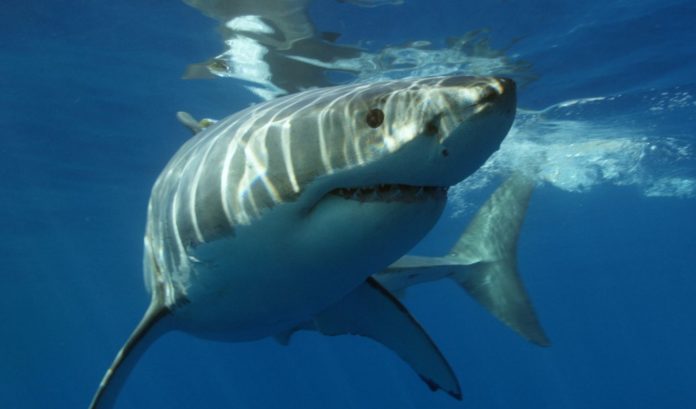Megatooth sharks like Otodus megalodon, also known as megalodon, thrived between 23 and 3.6 million years ago in oceans all over the world and could grow up to 20 meters long. In comparison, today’s largest great white sharks are barely six meters long.
Many explanations have been proposed to explain megalodon’s gigantism and extinction, with its diet and dietary competition frequently being mentioned.
In this work, researchers analyzed zinc stable isotope ratios in modern and fossil shark teeth from all over the world, including megalodon and great white shark teeth, both modern and fossil.
Scientists can now determine an animal’s trophic level, which shows how far up the food chain it feeds, using this new technology.
The zinc stable isotope analysis of tooth enameloid, the highly mineralised component of teeth, is comparable to the far more well-established nitrogen stable isotope analysis of tooth collagen, the organic tissue in tooth dentine, which is used to determine the degree of animal matter ingestion.
Jeremy McCormack, a researcher at the Max Planck Institute for Evolutionary Anthropology and the Goethe-University Frankfurt, notes that “on the timescales we investigate, collagen is not preserved, and traditional nitrogen isotope analysis is therefore not possible.”
The new work shows “for the first time, that diet-related zinc isotope signatures are preserved in the highly mineralised enameloid crown of fossil shark teeth,” says professor Thomas Tütken.
Comparing ancient and modern shark zinc isotope signals
The team compared the tooth zinc isotope signatures of extinct Early Miocene (20.4 to 16.0 million years ago) and Early Pliocene (5.3 to 3.6 million years ago) species to those of extant sharks using this new method.
The team “noticed a coherence of zinc isotope signals in fossil and modern analogue taxa, which boosts our confidence in the method and suggests that there may be minimal differences in zinc isotope values at the base of marine food webs, a confounding factor for nitrogen isotope studies,” says Sora Kim of the University of California Merced.
The researchers then looked at the zinc isotope ratios in megalodon teeth from the Early Pliocene, as well as those in earlier megatooth sharks, Otodus chubutensis, from the Early Miocene, and contemporaneous and modern great white sharks, to see how these iconic species impacted past ecosystems and each other.
The study findings reveal “that both megalodon and its ancestor were indeed apex predators, feeding high up their respective food chains,” adds Michael Griffiths, a William Paterson University professor.
“But what was truly remarkable is that zinc isotope values from Early Pliocene shark teeth from North Carolina, suggest largely overlapping trophic levels of early great white sharks with the much larger megalodon.”
Megalodon eats great whites
“These results likely imply at least some overlap in prey hunted by both shark species,” says Kenshu Shimada, a lecturer at DePaul University in Chicago.
“While additional research is needed, our results appear to support the possibility for dietary competition of megalodon with Early Pliocene great white sharks.”
Zinc isotopes, for example, provide a unique look into the past.
This new study “illustrates the feasibility of using zinc isotopes to investigate the diet and trophic ecology of extinct animals over millions of years, a method that can also be applied to other groups of fossil animals including our own ancestors,” McCormack concludes.
Image Credit: Getty
You were reading: New Research Might Have Figured Out Why Megalodon Went Extinct
